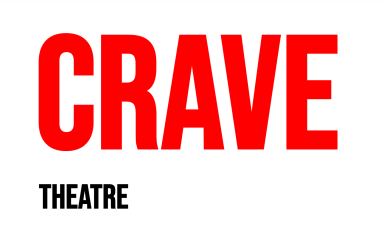CRAVE STUDIO
SOBER ACTING CLASSES FOR ACTORS OF ALL LEVELS
Recovery-Informed Acting Classes and Training
Our Acting classes have been tailored to help those in recovery who aspire to go on to explore a career in acting and the performing arts.
Although the classes are less psychologically or emotionally intensive than the work undertaken at an acting conservatoire, they are still complex in their ideas and methods and in some cases physically demanding. Therefore we only consider applications for the classes from those in recovery that are at least 6 months clean and sober and physically fit.
Our classes offer a range of skills and approaches at different levels, dependent on your prior experience with acting, and we hope that once you have explored one technique or approach you will broaden your skills in other areas that are of interest.
We offer classes live in London or Online for those who might be elsewhere in the world, and we try to keep our class sizes to between 10-14 to allow for maximum time to reflect on each technique approach and process how you might apply it in performance.
Our classes are also offered as a gateway to join our in-house CRAVE COMPANY, where we perform full length productions to the public and to invited industry professionals. It is not compulsory to follow this route but you would be absolutely encouraged to do so once you have sufficient confidence and capability.
Due to the emotional and psychological nature of acting and the physical requirements of the techniques, we advise that only those with at least six months of continued sobriety apply to join our studio.
We are continually adding one off workshops in specific techniques but take a look at our core acting classes below:
Core Acting Classes
As we grow our studio numbers, our classes on each method or technique initially will run for 3 hours, once a week for six weeks. These will be taught on alternating weeks meaning that each technique will be visited once a month. As a result of this preliminary timetable, the entire acting course could be completed over 24 weeks. However, each class is also tailored so that they can just as easily serve as drop-in sessions on specific, different aspects of the technique each week.
We engage with Psychophysical Acting Techniques in our intermediate level Stanislavski and Michael Chekhov's workshops. We also provide a Shakespeare fundamentals workshop for those wishing to learn or brush up on their classical verse speaking. And we have a basic level Meisner Technique workshop available for those interested in impulse and spontaneity without character.
We always work in relation to an appropriate given text and in 2025 we will explore Anton Chekhov's Three Sisters and Shakespeare's King Lear as core plays.
These classes are provided for both experienced or inexperienced actors but initially they are aimed to be at an academic standard equal to that of a first year University or Conservatoire level. They are structured and delivered as an ideal introduction to how one might apply typical acting techniques within a professional rehearsal setting.
As we continue to raise funds there may be a small charge to attend our classes, just to cover our expenses. However, we will strive to keep this as affordable as possible and more details of pricing will be released once our timetable is finalised in early 2025. We aim to start teaching a full schedule of classes workshops in early July.
Please read in more detail the nature of the core classes below and do get in contact with us here if you have any questions.
Michael Chekhov Technique
Michael Chekhov's acting technique emphasizes the use of imagination, physicality, and gesture to create deep and dynamic connections with a character.
It encourages tapping into universal archetypes and the character's internal life through external, expressive movements and by employing tools like the "psychological gesture," actors can embody the essence of a role and access emotions more fully.
The technique promotes a holistic integration of mind, body, and spirit in the actor's craft, resulting in performances that are free, truthful and imaginative.
Stanislavski's System & Active Analysis
Stanislavski's Active Analysis is a rehearsal technique that encourages actors to explore a play through physical actions and improvisation rather than relying on intellectual analysis. In this method, actors experiment with different objectives, obstacles and actions to discover the emotional and psychological truth of the characters.
Actors uncover deeper layers of meaning and build a more authentic connection to their roles by examining their personal response to the material. This makes it a dynamic and organic approach to understanding a play, helping actors to bring a sense of immediacy and life to performances
Shakespearean Speech and Performance
Shakespearean blank verse requires a mastery of the rhythm and structure of iambic pentameter. By balancing this poetic form with a naturalistic style of speech, the language feels spontaneous, emotionally truthful, and resonates with modern audiences.
We teach you essential tools for shaping the delivery, helping to maintain the verse's musicality while making the language clear and accessible.
These classes combines technical skill with creative interpretation to bring Shakespeare's words to life in a way that is both authentic and understandable.
Meisner Technique
The Meisner Technique focuses on fostering authentic, spontaneous reactions in actors by emphasizing truthful behaviour over scripted performance.
Central to this approach is the repetition exercise where actors gradually deepen their intuition and emotional responsiveness.
This method encourages actors to be fully present in the moment, reacting to their scene partner's behaviour rather than relying on preconceived ideas, thus stripping away self-consciousness and cultivating genuine interactions and emotional truth.
PLEASE NOTE: For safeguarding purposes CRAVE THEATRE absolutely reserves the right to remove members from the company or the studio immediately for any reason they see fit.
In such a case any money paid to CRAVE THEATRE for services that have not been provided will be refunded.
